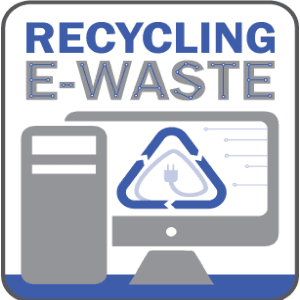Manufacturing companies in the Upstate are staying cautious as the novel coronavirus spreads closer to home. One plant near Spartanburg reportedly closed Monday, March 9, for cleaning as one of its employees potentially caught the virus on recent travel to Italy. As more cases are reported, Upstate manufacturing could see the effects continue to ripple.
The coronavirus’ toll on production is already being felt by companies globally, including those with significant production in China or that rely on Chinese imports. The New York Times reported that Apple and Microsoft are already feeling the effects of the production halts that essentially froze Chinese production while the country’s government implemented drastic safety measures.
 Companies in the Upstate are bracing for what could come. Ritrama’s Moore manufacturing facility is shut down for a deep clean because an employee may have contracted COVID-19, the disease caused by the coronavirus, local media reported.
Companies in the Upstate are bracing for what could come. Ritrama’s Moore manufacturing facility is shut down for a deep clean because an employee may have contracted COVID-19, the disease caused by the coronavirus, local media reported.
Others remain worried that they might be next.
Michelin, with its North American headquarters in Greenville, said in a statement that the company is “prepared to take action, as needed, in coordination with national, state and local government entities, as well as our suppliers and customers.”
Further, the company said that there hasn’t been any “impact or disruption among our plants in S.C. or in North America” nor in their supply chain.
The focus right now, it seems, is preparing for what-if scenarios and estimating what needs to be done to lessen the potential blow the outbreak would deal to the Upstate’s manufacturing lines.
ZF’s North American head of communications, Tony Sapienza, said, “With regard to the business and our manufacturing processes, ZF is in constant communication with all of our business partners with the aim of keeping supply chains stable and production downtimes low.”
“In some cases, deliveries from other plants are possible and can compensate for bottlenecks that may arise,” he added.
Sapienza explained that the production losses could partially be made up through additional work. “To what extent backlogs can be compensated depends on the further course of events. We are not seeing significant disruptions at this time,” he said.
GE also said it was currently monitoring the situation.
“Across our businesses, we are in constant communication with customers, suppliers and governments to maintain business continuity to the best of our ability,” a spokesperson for the company said in a statement.
The companies have implemented safety measures to protect employees and their production lines. GE, for example, has already begun implementing certain precautions and has developed new workplace protocols for their sites in China and in other locations such as South Korea, Italy and Japan.
“GE’s number-one priority is the health and safety of our employees. We are working closely with local governments, the World Health Organization and U.S. Centers for Disease Control to actively monitor the outbreak and take all necessary precautions,” a spokesperson from GE said in a statement.
In a recent conference call, GE’s CEO Larry Culp said the company expects hundreds of millions of dollars’ worth of negative impact in the first quarter of 2020 because of the virus.
The manufacturers also are looking into ways to implement flexible work arrangements as much as possible.
Fluor released a statement that said it was “closely monitoring” the virus and restricted nonessential business travel to several countries with a significant number of cases reported. “The health, safety and well-being of Fluor’s employees are paramount, and the company will continue to monitor developments as the situation changes,” the company said.
A BMW spokesperson told the Upstate Business Journal that all of the group’s production network is running, and that its three plants involved in the BMW joint venture in China restarted on Feb. 17.
“There is currently no impact on the security of supply in our supply chain. Our purchasing experts are monitoring the situation,” the spokesperson said.
While companies continue to monitor the situation, some have raised concerns about what the production freezes in China mean locally.
“We’re in uncharted territory,” said John Ling, managing director of LinVest Consulting LLC. Ling has spent years bringing Chinese manufacturing to the U.S. He said that when the coronavirus hit the news, he started getting calls from concerned businesspeople.
“Many companies [in the Upstate] import stuff for production. If this only lasts one or two weeks, then it’s a different matter, but if it’s dragged out too long, people will get anxious,” Ling said.
That anxiety could spell disaster to any economic recovery efforts.
While production facilities begin to reopen across China, the major economy is still not seeing production at full capacity. However, Ling said that at the end of this outbreak, the production sector will be able to heal much faster than the service sector, as people will probably continue to be cautious when it comes to travel and exposure to large groups of people.
Ling, who has family in China who have been affected by the quarantine efforts to stop the spread of the virus, said that while this may be a once-in-a lifetime event, people and businesses should always plan ahead.
 Of course, China isn’t the only country that’s stopped production.
Of course, China isn’t the only country that’s stopped production.
“We’re in a global economy,” Ling said. “Whatever happens in other countries, especially a major economy, eventually could affect us, too.
“No one is immune to this.”
The post Upstate manufactures stay alert for coronavirus appeared first on UPSTATE BUSINESS JOURNAL.





